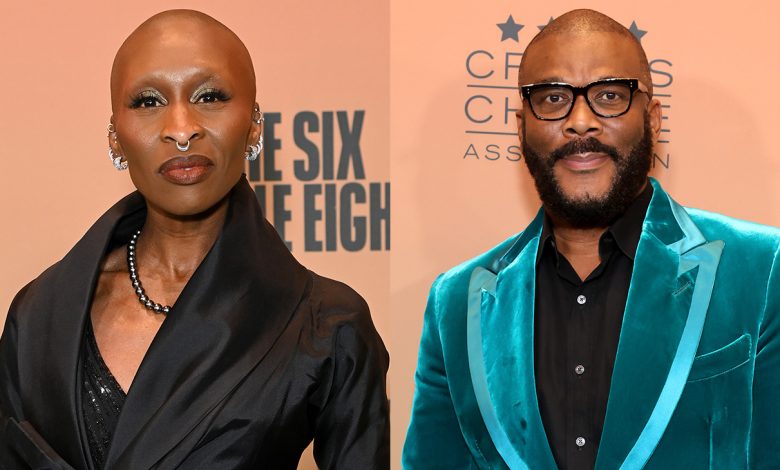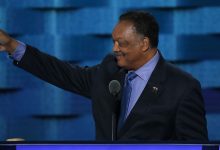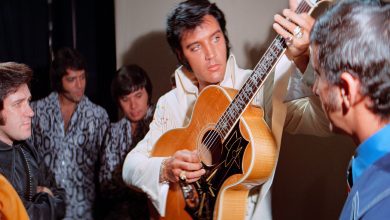Cynthia Erivo, Tyler Perry, Regina King, Aunjanue Ellis-Taylor Honored at Critics Choice Celebration of Black Cinema and Television

Star power was strong at the Critics Choice Association‘s 7th annual Celebration of Black Cinema and Television, where some 14 awards were presented to actors, producers, directors and composers, including Tyler Perry, Cynthia Erivo, Regina King and Aunjanue Ellis-Taylor.
The ceremony, held at the Fairmont Century Plaza in Los Angeles on Monday, was hosted by comedian Jay Pharoah, who brought levity to the room as the night’s honorees spoke about the impact of their awards and the work for which they were garnered.
Perry addressed the death of Steve Mensch, the president of Tyler Perry Studios who died in a plane crash Friday night, while acknowledging the 15th anniversary of his mother’s death just the day before while accepting the Icon Award presented to him by Kelly Rowland.
“This life is but a moment, it’s so precious, and we need to lean into spreading love one to another; I’m 55 years old, I’m tired of bullshit,” Perry stated. “I’m in a place in my life where I just want to make some people laugh and inspire and do good things and encourage people. And that’s what I try to do all of my life. But there’s an urgency in it now as I think about where we are in the world.”
“When I thought about an Icon Award, I go ‘OK, great, an icon is something,’ but you gotta be careful when people start calling you an icon because the hunters only shoot at the deer that they can see,” Perry continued. “If you’re an icon, you’re a target. People are watching, they’re gonna tear you down. There’s always somebody at the bottom trying to tear you down, and everybody else at the top is applauding. So it is my hope that as people say I’m an icon, they remember me more as an inspiration.”
Perry began his acceptance speech harkening back to a quote from author Jesmyn Ward, which fellow honoree Ellis-Taylor shared in her own speech: “The first weapon I ever held was my mother’s hand.” The actress went on to speak of what it meant to receive the Social Impact Award presented to her by Nickel Boys co-stars Ethan Herisse and Brandon Wilson and director Ramell Ross.
“I do this work because Black liberation in this country is a fragile, constant never-ending pursuit,” the actress said. “They can have their freedom with this lack of concern for the pain of others. I want liberation.”
Expressing an intention to continue her legacy of telling stories of overlooked Black heroines, Ellis-Taylor added, “My fight will be to tell the truth of these women. Our creators, Black women, Fannie Lou Hammer, Ella Baker. If I have to sell fish plates on the side of the road until my last breath, I’m going to do that. It will be my fight, my next fight. But I don’t want to do it alone. So don’t let me.”
Additional honorees included Regina King who received the Trailblazer Award for Shirley, Wendell Pierce the actor award (series) for his work on Elsbeth and John David Washington the actor award (film) for The Piano Lesson. How To Die Alone creator Natasha Rothwell was given the producer award, Steve McQueen the director award for Blitz, and Jharrel Jerome the breakthrough award for Unstoppable. Kris Bowers also received the composer award for his work on The Wild Robot, while The Fire Inside‘s Ryan Destiny and Power‘s Michael Rainey Jr. were each given the Rising Star Award for film and series, respectively. Natalie Rae and Angela Batton received the documentary award for their project Daughters and filmmaker Malcolm D. Lee was presented with the Career Achievement Award by members of the cast of The Best Man, the movie that launched his foray into Hollywood. Among the presenters were Ava DuVernay, Aldis Hodge, Mara Brock Akil and Jeffrey Wright.
Cynthia Erivo, who earlier in the day was nominated for a Golden Globe Award for her role as Elphaba in Wicked, also accepted the actress award from the Critics Choice Association — presented to her by Sheryl Lee Ralph, who played Madame Morrible in the Broadway musical.
“Stories like Elphaba’s — the story of the rebel, the story of the misunderstood, of the brave, who found strength in the things that set her apart, the story of the extraordinary abilities, and most importantly, extraordinary humanity — are our stories, and my stories too,” said Erivo. “As a Black queer nominee, the opportunity to bring Elphaba alive was the gift of a lifetime. And I don’t think any amount of words could ever really eloquently describe the type of grateful I am to be able to play a girl that can fly so that other little girls could know they could fly too.”
“When I was a little girl, I didn’t see many faces like mine in stories like this,” Erivo continued. “Curly hair, brown eyes, high cheekbones, flat little nose in the middle playing superheroes. And now, they have it. So, for every child who sees themselves in Elphaba now, for every Black person who feels her strength, for every queer soul who recognizes their own battle to embrace who they are, for anyone who has ever felt alone and unseen, Wicked is for you. Elphaba is a love letter to you. Representation is a powerful thing. It’s why I wanted the long nails, her microbraids and her boldness to reflect not just her greenness but my Blackness. I know my roots, they’re where I begin. Because when we bring our whole selves into the work, it becomes a mirror, not just for us, but for the world.”
Source: Hollywoodreporter
Related Posts
- Roundball Rocked: With NBA Return Looming, NBC Purges Scripted Roster
- SoundCloud Says It “Has Never Used Artist Content to Train AI Models” After Backlash on Terms of Service Change
- Fox News’ Camryn Kinsey Is “Doing Well” After Fainting on Live TV
- Kerry Washington and Jahleel Kamera in 'Shadow Force.'
Courtesy of Lionsgate
…
- This Alternative Artist Landed a Top-20 Chart Debut With an Album Made Almost Entirely on His Phone





